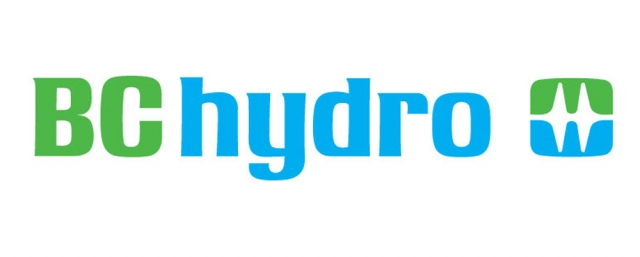BC Hydro to cut proposed rate increase in half following government review
A government review panel has painted a picture of a bloated B.C. Hydro Corp. which is overstaffed by up to 1,200 employees.
Panel member Cheryl Wenezenki-Yolland, acting deputy minister of advanced education, said Thursday that the Crown corporation is overstaffed in the communications, human resources and engineering departments.
The panel responded to Hydro’s proposed rate increases totaling 30 per cent over three years. Prior to this, full time staff increased by 41 per cent from 2006 until 2010, for a total of 6,000 employees.
As a result, BC Hydro has been ordered by the Province to reduce its proposed rate increase over the next three years by 50 per cent — a hike that would have also directly impacted Nelson Hydro customers.
The reduction, which will be determined by the BC Utilities Commission (BCUC), is designed to strike a balance between keeping rates down and enabling BC Hydro to invest in the future infrastructure needs of the business.
Hydro says the rates were needed to undertake seismic upgrades, improvements to the transmission network and $8-billion worth of capital expansions to improve generating capacity.
BC Hydro will make a revised application to the BCUC later this year.
The Province and BC Hydro have agreed to ask the BCUC to lower the earlier proposed annual rate increase of 9.73 per cent a year for the next three years to the current interim eight per cent increase, followed by a 3.9 per cent increase for each of the following two years.
This would reduce the cumulative impact of BC Hydro’s proposed rate increase by almost 50 per cent. The interim rate increase was added to BC Hydro’s customers’ bills earlier this year.
BC Hydro will achieve the reduction by lowering its costs, as recommended in a comprehensive financial and administrative review of BC Hydro by a provincial government panel of senior officials that was released today.
The Crown corporation said it intends to implement the panel’s recommendations by accelerating cost-saving initiatives that are already underway, as well as other efficiencies identified during the review process.
Trimming the budget
As a result, BC Hydro will decrease expenditures by more than $800 million over three years in the areas of operating costs including a downsized workforce, deferred capital expenditures, updated trade income forecasts, and changing the amortization period for demand-side management programs.
According to the panel, BC Hydro has generally done a good job of providing electrical services to British Columbians at low rates, but the utility’s operating costs have been increasing.
They recommend BC Hydro reduce rates through efficiencies and improvements in capital asset planning and management, as well as stronger procurement processes.
Other recommendations
In the area of policy, the panel recommends the Province and BC Hydro evaluate alternative definitions and timelines for government’s self-sufficiency policy, which requires BC Hydro to obtain sufficient electricity supply from sources within British Columbia by 2016.
The panel also recommends further work be undertaken on objectives for cost allocation and rate design. Rate design is the process used to allocate costs to customer classes (such as industry, small business and residential and determine rates.)
As the economy improves, the Province and BC Hydro will further examine its capital structure and dividend policy, as well as water rental rates.
Quick facts
- The review was led by a panel of senior officials, including deputy minister to the premier, John Dyble; deputy minister of finance, Peter Milburn and acting deputy minister of advanced education, Cheryl Wenezenki-Yolland.
- BC Hydro operates 30 hydroelectric facilities and three natural gas-fuelled thermal power plants. About 80 per cent of the Province’s electricity is produced by major hydroelectric generating stations on the Columbia and Peace Rivers.
- BC Hydro generates between 43,000 and 54,000 gigawatt hours of electricity annually, depending on annual water inflows.
- British Columbia’s appetite for electricity is forecast to increase by up to 40 per cent in the next 20 years – an equivalent of adding five cities the size of Vancouver to our electrical grid.
Significant recommendations to BC Hydro
- Provide a business plan to its board of directors that details savings to be realized over Fiscal 2012-14, as well as continued savings in its next Revenue Requirements Application.
- Accelerate the pace and magnitude of change within BC Hydro to develop an organizational structure that keeps costs down and passes savings to British Columbians.
- Ensure the best options are applied to various procurement processes and the risks are allocated appropriately between BC Hydro and its vendors.
- Downsize the workforce by up to 1,000 employees over the next three years and work with unions to better align collective agreements with other public sector agreements.
- Review the methodology with government that allocates costs among customer classes to ensure it supports government priorities and objectives for rates.
- Evaluate alternative definitions and timelines for self-sufficiency so that they meet the needs of the Province and British Columbians in the long-term.
- As the economy improves, work collaboratively with the Province to re-define the water rental rates charged to BC Hydro and determine a capital structure and dividend policies that balance the needs of the Province and the utility.
- Ensure weighted and defined evaluation criteria are mandatory within competitive bid documents to improve transparency, promote consistency and enhance vendor relationships.
- Expedite full implementation of BC Hydro’s technology projects.
- Ensure its conservation programs achieve value for money.



























Comments